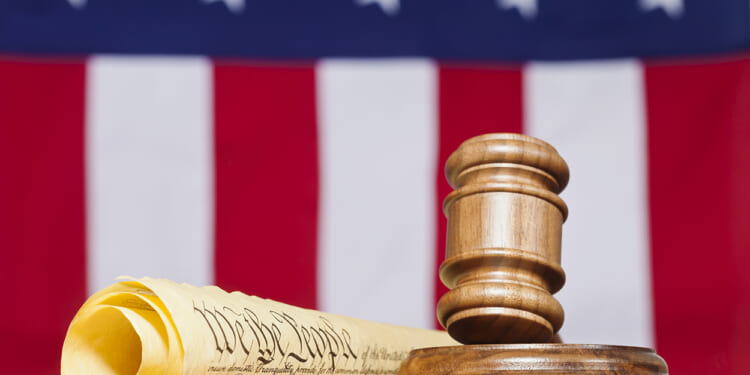If those in federal office are willing to pay attention, the states are displaying the best—and the worst—of our republican form of government.
Every four years, American citizens get the opportunity to express their satisfaction or dissatisfaction with the direction of the country, endorse a policy agenda for the nation, and hold the occupant of the highest office in our federal government to account for his leadership or lack thereof.
But in the intervening years between what some treat as a national Rorschach test, lawmakers are the policymakers entrusted to express the will of the people.
Fifty laboratories of innovation provide Americans with the freedom to vote with their feet by living in states that reflect the priorities around which their pursuit of happiness seems most reliably cultivated. The states also provide an effective case study for varying policy initiatives upon which our federal government can rely for evidence-based decision-making for the nation.
As an example, the Tennessee General Assembly recently passed landmark legislation addressing the disturbing trend of debanking. Once signed by Gov. Bill Lee, a Republican, this law will provide consumer protection by prohibiting big banks from canceling accounts based on the constitutionally protected freedoms of speech and religious exercise.
Applying to the largest financial institutions, those with at least $100 billion in assets, the law provides a road map for other states to follow. Since the federal government is where banks that are “too big to fail” look for taxpayer-funded bailouts, Congress should follow Tennessee’s lead as well.
Contrast this approach of protecting access to basic financial services regardless of ideology with the state of New York. The U.S. Supreme Court recently heard from the National Rifle Association, which is seeking to stop New York state officials from using political power to coerce banks, insurers, and other service providers to refuse service to the Second Amendment advocacy organization.
In Idaho, Gov. Brad Little, a Republican, signed HB 578, which will ensure that faith-based adoption and foster care providers are free to serve children in need and work with the state to find loving, forever homes for kids.
Meanwhile, next door in Oregon, Jessica Bates is prevented from adopting children because she won’t agree to the state’s demand that she promote gender ideology. Apparently, Bates doesn’t have a high enough “social credit score” to be deemed a worthy parent by the state.
Idaho simultaneously protects the right of conscience and promotes the best interests of children in need of loving homes, while Oregon prioritizes politics over people.
One might look at these polar-opposite expressions of policy preferences and despair of a nation plagued by irreconcilable differences. But to the federalists among us, these differences are not a bug but a feature of our system.
Our national political culture is divided, but no more so now than it was at our founding. Today we simply have divisions of 50 instead of the 13 that existed when our Constitution was adopted. Then, as now, life in the states can look drastically different across our internal borders.
From the beginning, these United States of America were a hodgepodge of varying ethnicities, religions, economies, and political beliefs. What united the states then can still unite them today—the recognition of our fundamental God-given rights and the implicit American compact to protect those rights for all, regardless of which direction the political winds may blow across a state or the nation.
If an executive or legislative branch of state or federal government, even with popular support, goes so far as to implement policy that conflicts with these fundamental rights, our judiciary is empowered to rein in the wayward whims of the democratic process. This ensures that our fundamental rights are recognized in all 50 states while allowing for policy differences on other matters.
American journalist H.L. Mencken once said: “Democracy is the theory that the common people know what they want and deserve to get it good and hard.”
Thankfully, our Founders were keenly aware of the fallen nature of man, the seductive trappings of power, and thus the perils of pure democracy for the God-given rights of the individual. They had the foresight to give us, as Benjamin Franklin reportedly quipped, “A republic, if you can keep it.”
When our federal government is focused on protecting fundamental rights guaranteed to all by the Constitution’s principles while respecting the role and differences of the states, we improve our chances of “keeping it.”
The Daily Signal publishes a variety of perspectives. Nothing written here is to be construed as representing the views of The Heritage Foundation.

